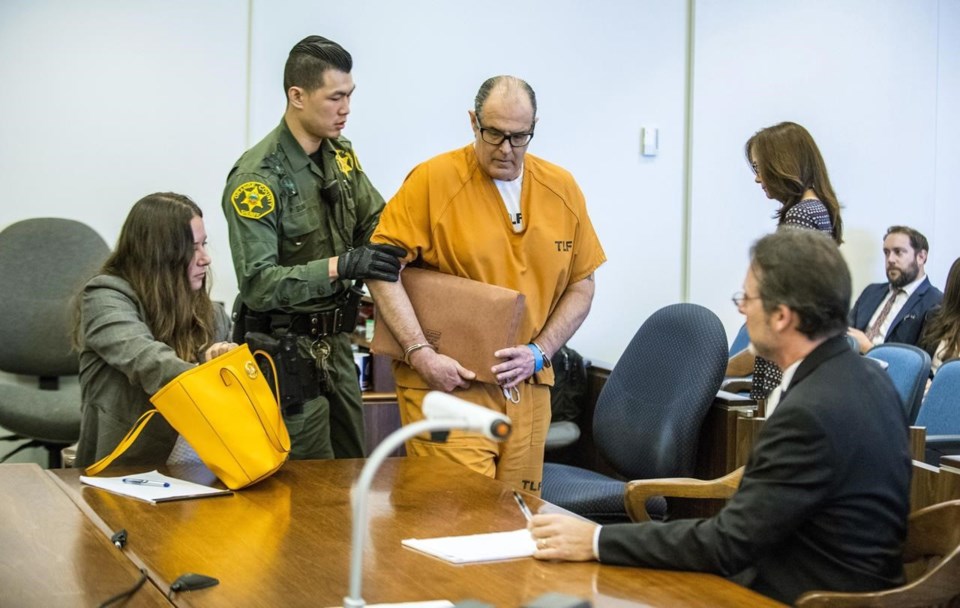SANTA ANA, Calif. (AP) — The U.S. Justice Department said Thursday that the Sheriff's Department and prosecutors in Orange County, California, ran an extensive jailhouse informant program for years that violated the rights of criminal defendants.
The federal agency, which began investigating the allegations in 2016, issued a lengthy report detailing Orange County authorities' use of the informants from 2007 to 2016 and their failure to release information, as required by law, about incriminating statements gathered by the informants to lawyers for the accused.
The report said the district attorney's office had failed to conduct a full probe of the scandal that rocked the county of 3 million people and said it should "establish an independent body to conduct a more comprehensive review of past prosecutions involving custodial informants.”
Orange County, which saw a number of criminal cases upended once the allegations came to light, stopped using the informants in 2016, the report said.
"The failure to protect these basic constitutional guarantees not only deprives individual defendants of their rights, it undermines the public’s confidence in the fundamental fairness of criminal justice systems across the county,” Assistant Attorney General Kristen Clarke said in a statement.
The report comes years after the allegations of prosecutorial conduct arose in the case of a man who killed eight people in a 2011 shooting in a hair salon.
Scott Dekraai pleaded guilty to the murders but was spared the death penalty over authorities' use of an informant to cull information from him while he was represented by a lawyer — which was unearthed when his attorney flagged that the informant had also been involved in another high-profile case.
In a separate instance, a gang member charged with a 2004 killing took a plea deal and a shorter prison sentence after an earlier conviction was set aside over concerns that prosecutors had failed to share critical evidence.
Orange County District Attorney Todd Spitzer said he has cooperated with the federal investigation since taking office four years ago and that he led his own probe that found veteran prosecutors were negligent in the Dekraai case. He said much of the informant activity was hidden from prosecutors, preventing the proper disclosure of information.
“This report confirms exactly what we already knew,” Spitzer said in a statement. “I have made it unequivocally clear that I refuse to accept the ‘win-at-all costs’ mentality” of the prior administration.
In a statement, the Sheriff’s Department said it has worked for the past six years “to identify errors and protect the constitutional rights of all persons housed in the Orange County Jails.”
“This includes significant procedural and operational improvements, unprecedented transparency, and multi-layered systems of checks and balances,” the statement said.
Sheriff Don Barnes said he was confident that the Justice Department “will find our current practices have addressed many of their recommendations.”
Assistant Public Defender Scott Sanders, who represented Dekraai, said the federal report shows that county agencies are still not doing enough to protect the rights of the accused.
Authorities can use jailhouse informants but can't have them deliberately elicit information from defendants once they are represented by lawyers. In addition, prosecutors are required to turn over evidence to defense attorneys that could be seen as favorable to their clients.
The Associated Press




